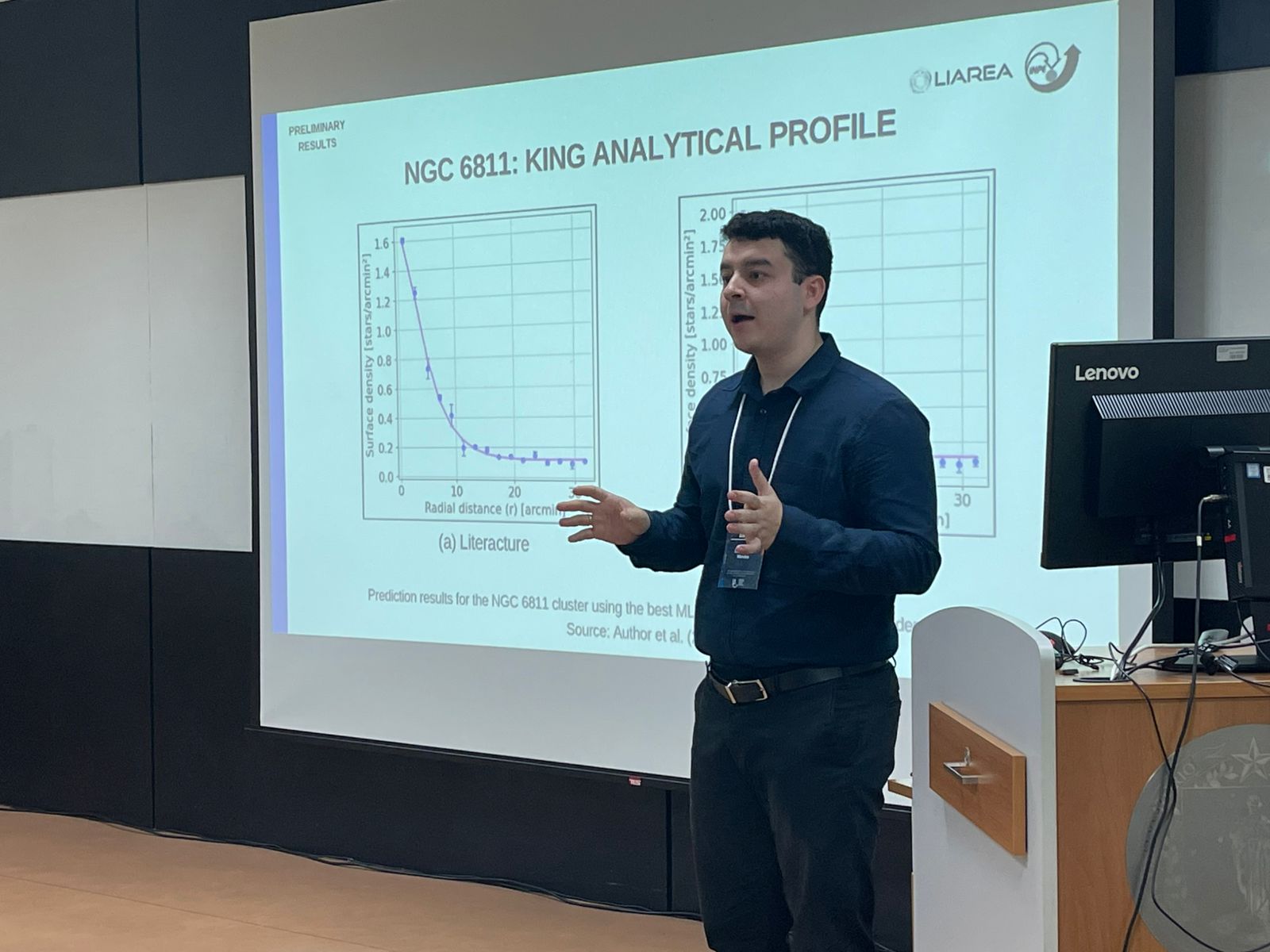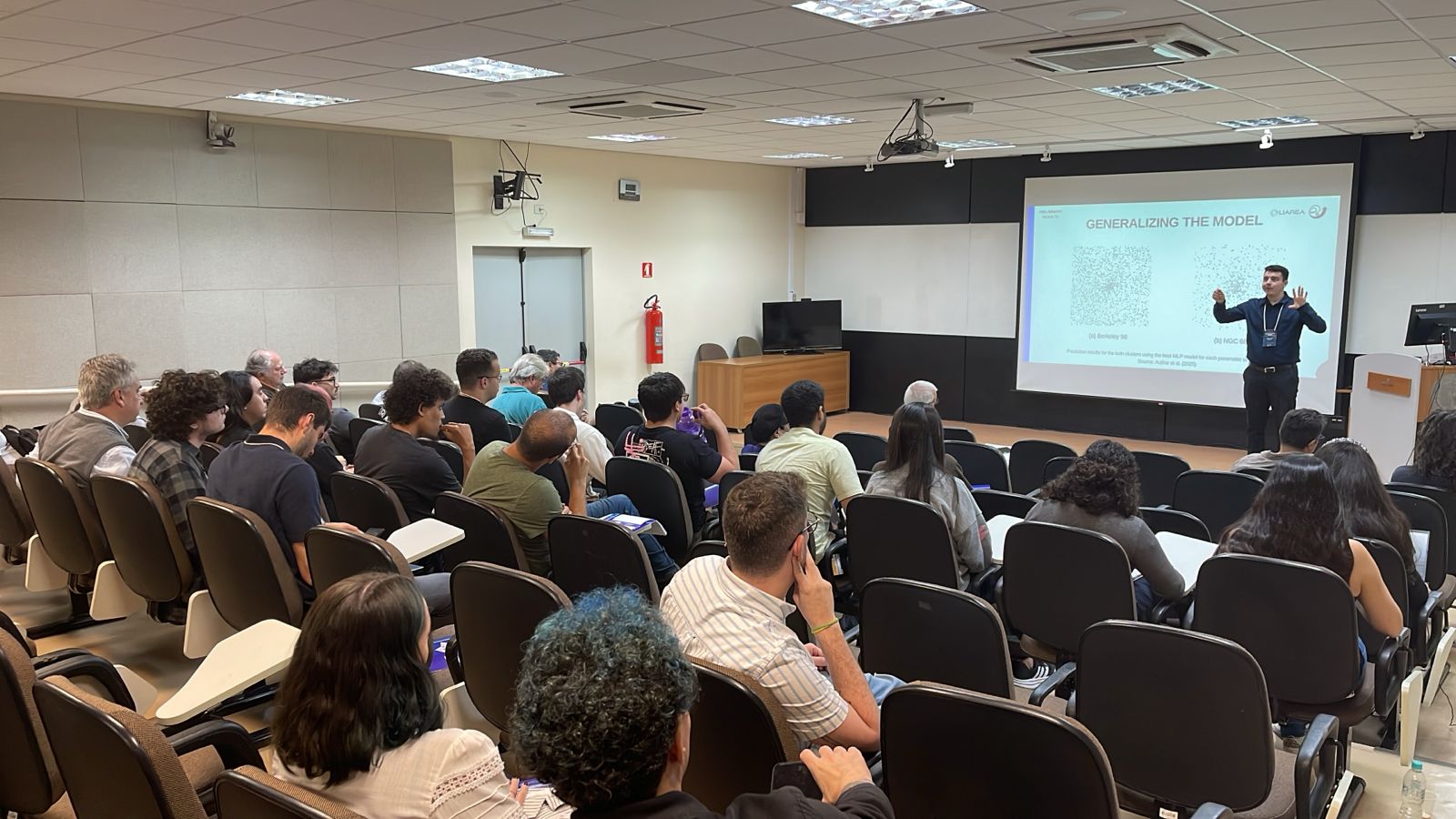The Laboratory of Artificial Intelligence for Aerospace and Environmental Applications (LIAREA), from the National Institute for Space Research (INPE), took part in the 5th SPAnet Workshop on Artificial Intelligence in Astronomy (AIA 2025), reinforcing its leading role in the integration of astrophysics and artificial intelligence in Brazil. At the event, MSc candidate Dener Mendes presented a study introducing AION-1 (AI-based Inference for Open-cluster Networks), a novel approach for the analysis of open star clusters.

Dener presenting his research outcomes.
The research addresses the challenge of determining the structural parameters of these celestial objects — such as radii and density — by overcoming limitations found in traditional methods. AION-1 leverages deep neural networks (Deep Learning) and Machine Learning techniques to analyze celestial maps of the clusters, extracting their features automatically and accurately using data from the Gaia DR3 catalog.

Dener presenting to the audience the AION-1 approach.
LIAREA’s participation in AIA 2025 underscores its commitment to advancing artificial intelligence technologies in astrophysical research and contributing to high-impact scientific innovation.
